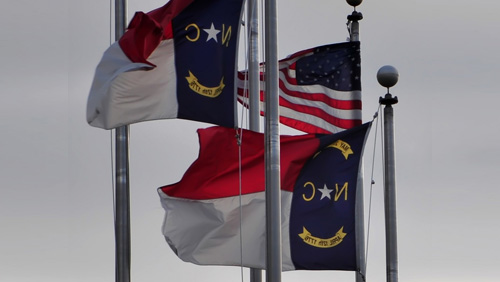The Tar Heel State has decided that daily fantasy sports (DFS) isn’t enough of an attraction to warrant legalization. Yesterday, North Carolina (NC) lawmakers in the House Judiciary Committee shot down a bill, House Bill 929 (HB 929), that would have allowed the industry to flourish, as well as to provide additional revenue to the state. However, it’s a safe bet that another DFS bill will be introduced in the near future.
 HB 929 sought to legally define DFS as not a form of gambling according to state law. It would have allowed the NC Lottery Commission to morph into the NC Gaming Commission and establish regulations and collect fees for the activity. The bill had already passed a vote by the House Commerce committee before being rejected by the House lawmakers on the Judiciary Committee.
HB 929 sought to legally define DFS as not a form of gambling according to state law. It would have allowed the NC Lottery Commission to morph into the NC Gaming Commission and establish regulations and collect fees for the activity. The bill had already passed a vote by the House Commerce committee before being rejected by the House lawmakers on the Judiciary Committee.
The denial wasn’t due to a desire to prevent DFS from being offered in the state; rather, it had more to do with the way the bill was worded. DFS is already popular in NC, but isn’t regulated and HB 929 only sought to put the regulations in place to protect consumers. It wanted to define DFS as a non-gambling activity, and amendments tried to strip out that provision, as well as to force a year-long study of the industry. However, the bill’s sponsors denied the amendments, asserting that, since DFS is already occurring, no study is needed.
After a public commenting period during the committee’s hearing on the bill, which only saw two members of the community speak, the House committee put the measure to a vote. A voice vote showed overwhelming opposition for the bill, so committee chairman Representative Ted Davis called for a second voice vote. That vote had mixed and unclear results, so a hand-count vote was called. That vote saw 16 oppose the bill and 12 approve of it, leading to HB 929’s failure in the committee.
Nine states have officially defined DFS as a form of gambling, while the rest are more open to the subject. DraftKings and FanDuel have been more than willing to offer online operations in those states where the activity is legal, while avoiding those where it isn’t, apparently learning from past experience that has resulted in the two entities being labeled “bad actors” in some form or another. However, with such overwhelming support across the US for DFS, it’s time for the other nine states to reconsider their positions, as well.





